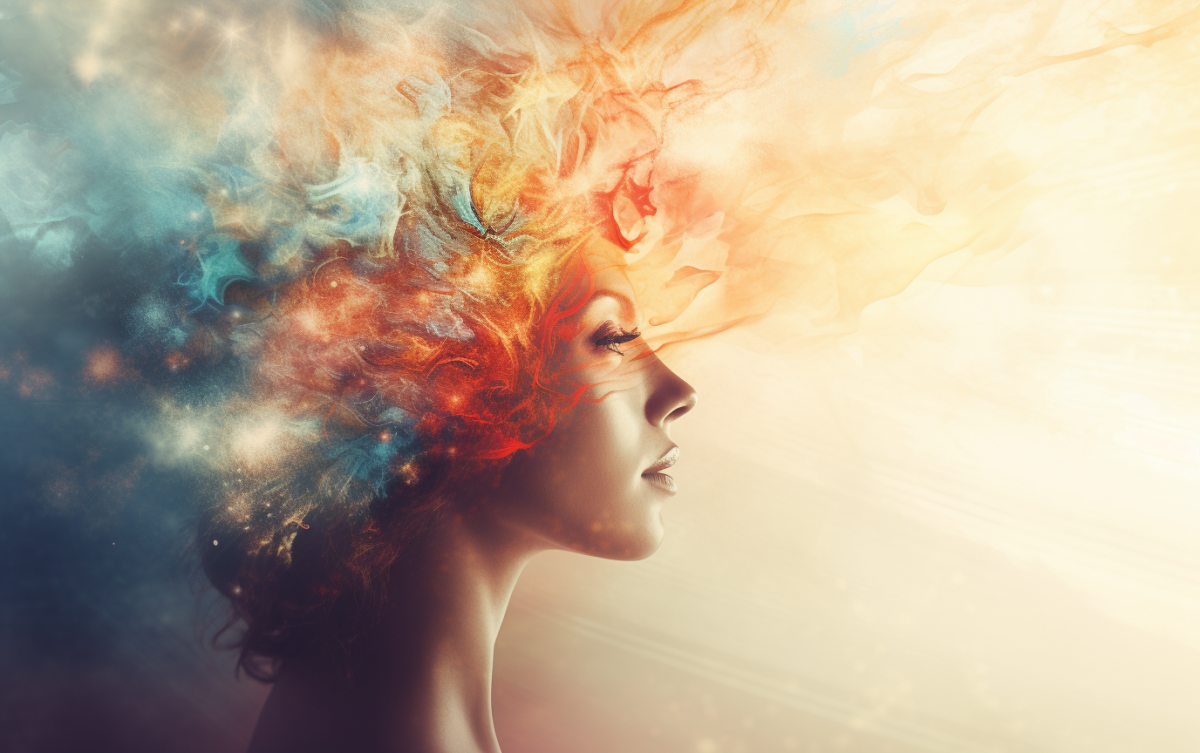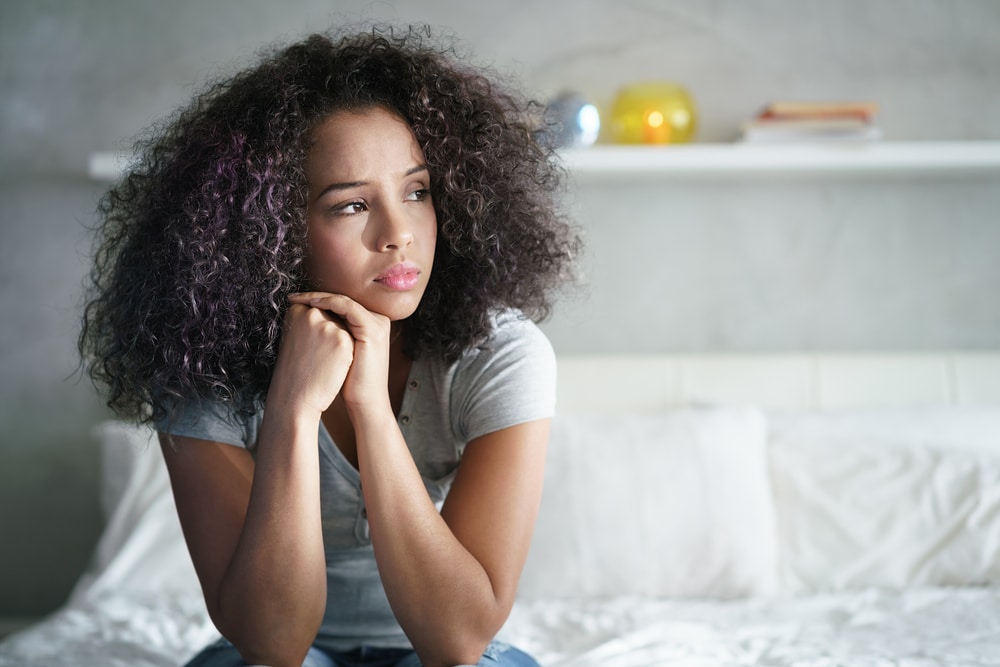Melatonin supplements have been used for decades to promote sound, natural sleep. This natural hormone that’s also produced by our brain’s pineal gland. More on this in just a moment.
While melatonin may help combat sleep problems or even sleep disorders, recent clinical trials suggest this natural hormone can improve anxiety disorders too. Some believe this is because melatonin improves sleep, which reduces anxiety, while others suspect melatonin may directly impact anxiety symptoms to counteract this mental health disorder.
So, what’s really happening beneath the surface? Read on to learn how melatonin may help your anxiety, how you can use it, what potential side effects it may have, and more.
What Is Melatonin?
Melatonin is a hormone produced primarily at night by the pineal gland that regulates your circadian rhythm — the 24-hour sleep-wake cycle that tells us to sleep when it’s dark and stay awake during the day. Circadian rhythms are often controlled internally, but external factors, like sunlight, temperature, exercise, and more, can influence these rhythms as well.
In a perfect scenario, the pineal gland will secrete higher levels of melatonin at night to help you fall asleep and stay asleep. When morning comes, melatonin levels will fall and cortisol begins to rise to signal to your body that it’s time to slowly start waking up.
Unfortunately, this doesn’t always happen so effortlessly.
Factors such as noise, light, stress, working hours, jet lag, lack of exercise, poor diet, and many other factors can cause your body to produce low levels of melatonin. If your levels of melatonin are hindered, you may experience sleep deprivation, fatigue, or mood disorders among countless other troubles.
Fortunately for us, if we’re tossing and turning at night due to loud noises, bright lights, or a lack of melatonin production, we can take melatonin supplements to help us fall asleep.
Sleep and Mental Health
You may now be wondering how melatonin production relates to mental health. What does a hormone that aids in sleep regulation have to do with anxiety anyway? To answer this question, let’s take a step back to focus not on melatonin, but on sleep.
Sleep and mental health are very closely connected. Every 90 minutes or so, a healthy individual will cycle between four phases of sleep. Body temperature drops and heart rate slows during the first sleep phase. By the fourth phase, your body is working much harder than you’d think, performing physiological changes that boost your immune system and prepare your nervous system for another day.
Sleep disturbances that disrupt this transition between stages of sleep can wreak havoc on your brain. Your cognitive function may become impaired, stress hormones may be released, and above all else, your emotional regulation may not function as it should.
If this happens once, you can go to bed early the next night and make up for lost sleep without worry. Consider tracking your sleep with Biostrap’s Recover Set to gain valuable insights into the quality of your sleep, including sleep stages, movement, and awakenings, and how your nervous system recovers and adapts to stressors on any given night.
If your sleep efficiency is repeatedly impacted, your mental health may suffer in return.
This is where melatonin may come to the rescue. By taking melatonin, you can help your body get the sleep it needs to recover well both physically and mentally. Melatonin treatment can be an efficient sleep aid that promotes healthier, consistent sleep. These positive effects of melatonin can thereby ensure your mind and body are healthy and ready to go, each and every morning.
Melatonin for Anxiety: What the Research Says
Now that we’ve drawn a connection between melatonin and mental health, let’s take a closer look at the evidence and systematic reviews that support these claims.
Much of the human research on melatonin has been conducted on patients undergoing a surgical procedure. Surgery is often a stressful and anxiety-inducing process, and medications are often used to curb such anxiety. But recent research suggests melatonin may be equally as effective as prescription medication.
A 2015 meta-analysis that looked at studies comparing the use of melatonin to anti-anxiety medication and a placebo sugar pill found that taking melatonin before surgery was more effective at reducing anxiety than the sugar pill. Most studies also suggested melatonin was equally as effective as the heavier medication.
Some studies found that melatonin also helped reduce anxiety after the procedure, but other studies found no benefit.
A 2018 study found that melatonin helped reduce anxiety as well as an oral Alprazolam, a sedative drug used to promote sleep before surgery. A separate 2018 study that evaluated people who’d undergone heart surgery found that melatonin worked better than Oxazepam when it came to improving sleep and reducing the symptoms of anxiety after surgery.
From these studies, we can conclude that melatonin may effectively reduce anxiety before and after surgery, though we don’t yet know if it’s equally effective with other forms of anxiety such as panic attacks. More clinical studies are needed.
Different Forms of Anxiety
It’s important to keep in mind that anxiety is an umbrella term used to describe conditions that are characterized by feelings of worry, anxiousness, or fear that impact your daily life and performance. While some evidence suggests melatonin administration may help with anxiety, it’s not yet clear what forms of anxiety can be treated.
For this reason, it’s important to speak with your doctor before taking melatonin for anxiety. A healthcare professional is better equipped to understand the causes of your anxiety and work through them with you.
Using Melatonin for Anxiety
Using melatonin for anxiety is as simple as taking a melatonin supplement before bed. These supplements come in tablet form and can be taken by mouth or dissolved under the tongue. Clinical studies suggest taking 3-10 milligrams before bed for optimal results. Higher doses of melatonin do not necessarily work better. However, age, body weight, and sensitivity to melatonin may affect the recommended dosage.
As you begin looking for melatonin supplements, look for reputable, high-quality options. Supplements like melatonin aren’t regulated by the Food and Drug Administration (FDA), so it pays to do your research and find reliable and trusted sources. For example, some supplements are verified by the United States Pharmacopeia, which means they’ll be free of contaminants and safe to consume.
Side Effects and Risks
Supplementing with melatonin is a simple and low-risk option. While its short-term use has been found safe, more studies are needed to evaluate any long-term use effects. Unwanted side effects or adverse events rarely occur, and they’re often mild if they do.
According to the Mayo Clinic, side effects may include headaches, dizziness, nausea, or upset stomach. Additionally, melatonin may interact with blood thinners, blood pressure medication, and other medications that cause sleepiness.
If you’re an older adult or you happen to suffer from a medical condition that requires medications such as these, speak with your doctor to determine if melatonin is right for you. They may be able to offer an alternative medication to help you find short-term or long-term relief from anxiety.
Should You Take Melatonin for Anxiety?
Melatonin has been studied as an alternative and natural sleep aid for decades, but research hasn’t yet determined if it works for all forms of anxiety. Consider talking with your doctor to determine if using melatonin for anxiety is the right choice for you. If the root cause of your anxiety is due to poor sleep quality, melatonin could be the key to falling asleep with ease and waking up feeling well-rested and ready to conquer the day.




